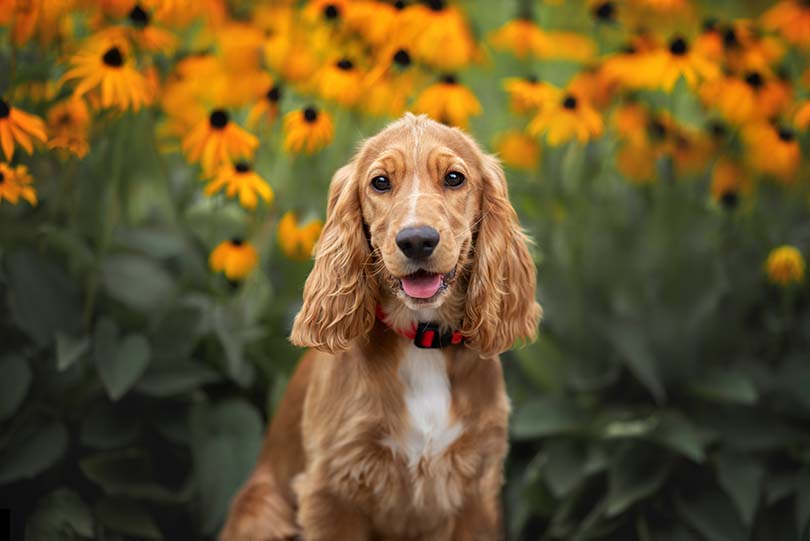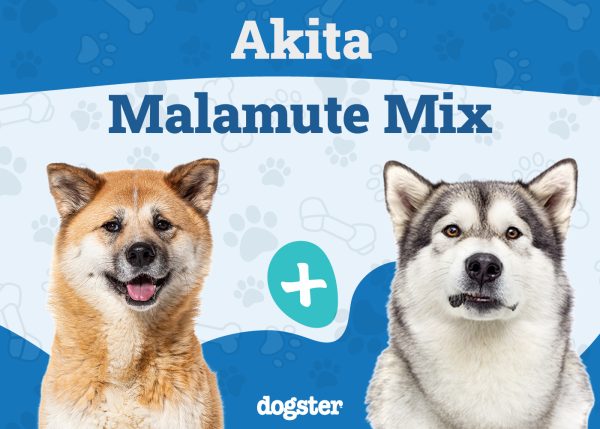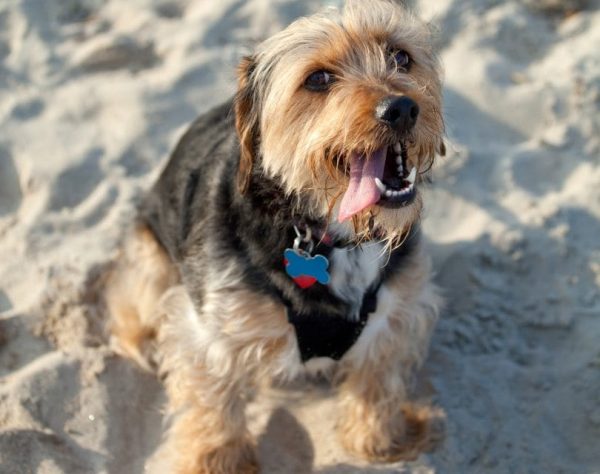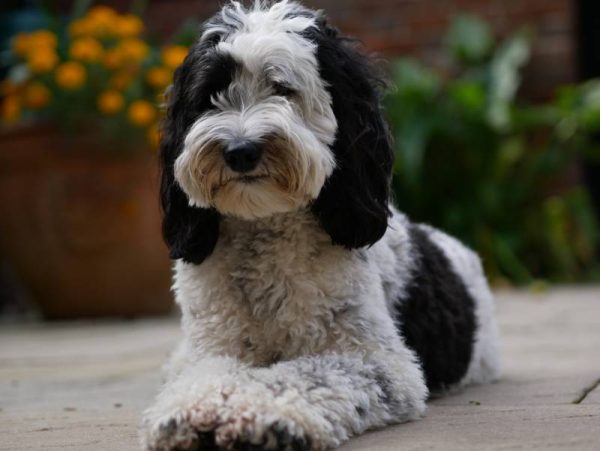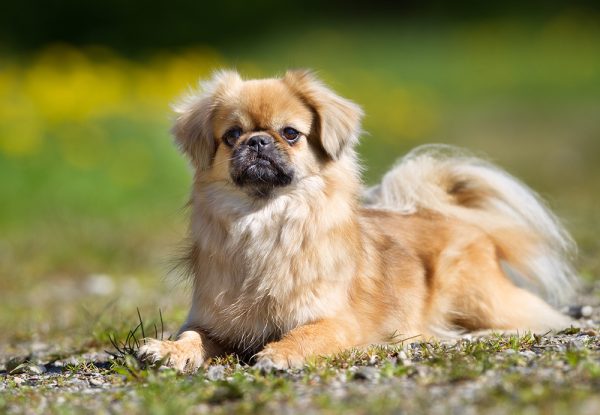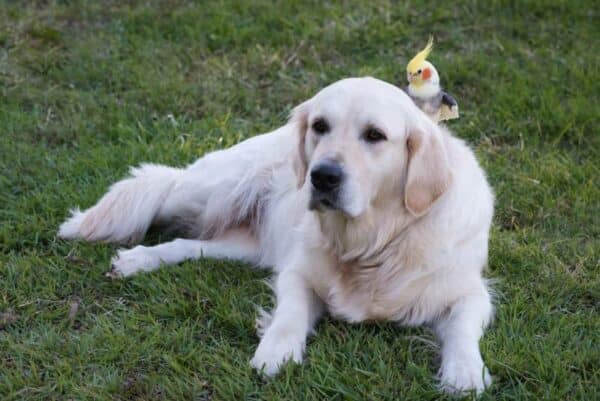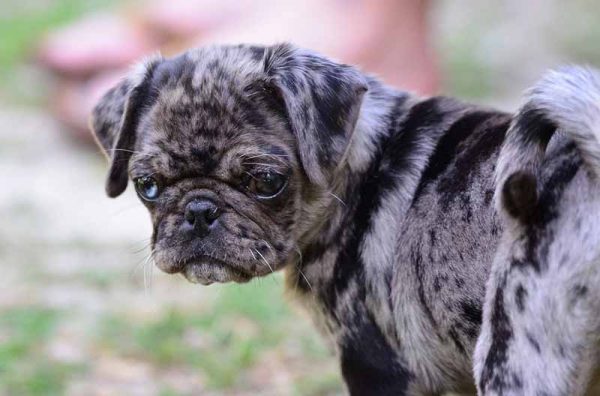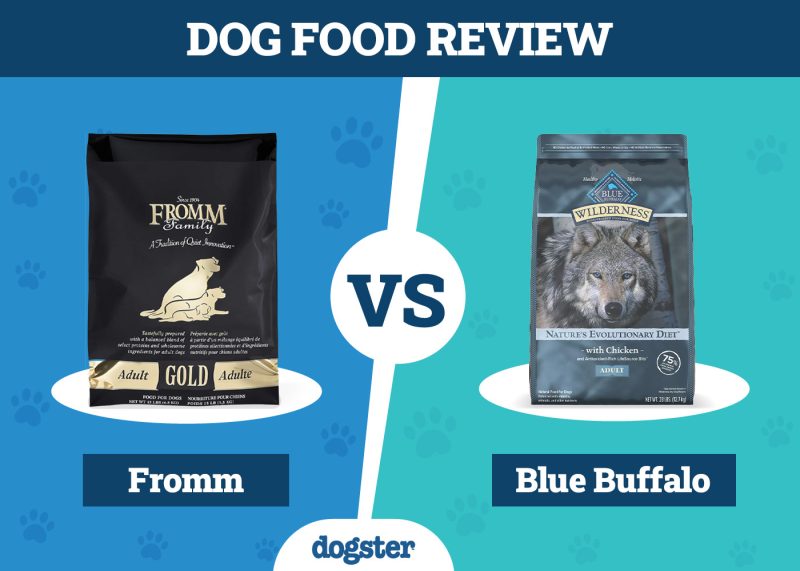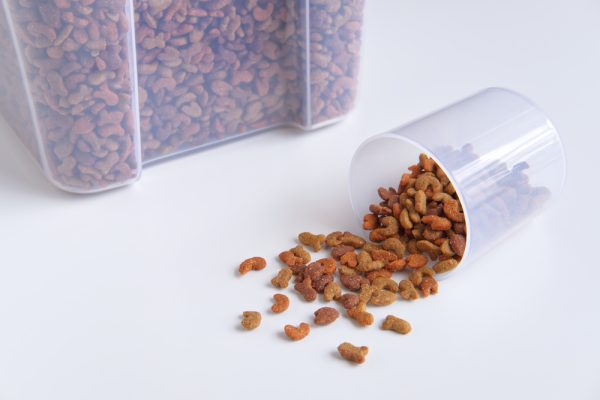In this article
This breed is strong and witty, with a playful, eager-to-please temperament. That makes them the perfect companion for a hunter. Cocker Spaniels aren’t the only dogs that belong to the sporting group, though. So, in this guide, we cover Cockers in detail, talk about the other sporting breeds, and go over how to keep your dog safe. Let’s get to it!

What’s a Sporting Dog? The Definition
The AKC recognizes seven different dog groups, each with their own purpose.1 The list includes herding, toy, hound, and working groups. Working dogs were specifically bred to pull heavy carts and protect livestock. Sporting dogs, in contrast, were brought up with the sole purpose of helping hunters locate, flush, and retrieve feathered game. Raised by hunters who made a living killing and selling game, sporting dogs can retrieve shut-down birdies both from land and water.
The Royal Kennel Club uses the term “gundog” to describe canines that specialize in pointing and retrieving game,2 so that’s how it classifies Cocker Spaniels. For all intentions and purposes, though, they’re the same thing as a sporting dog.
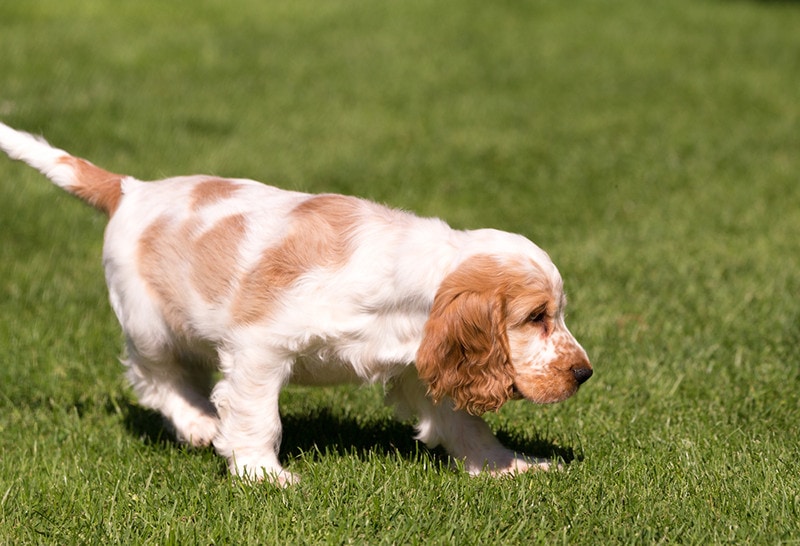
What Were Cocker Spaniels Bred For?
For centuries, Cocker Spaniels have been helping humans catch birds, with the first mentions dating back to the 14th century. They first mastered the art of locating and scaring birds into traps (nests). When rifles came around, Cockers learned how to “flush them out” and expose the prey to a perfect shot. Thanks to their heightened senses, obedience, and curious nature, these dogs are incredible hunters.
Unlike most canines, Cocker Spaniels don’t get spooked by a rifle shot and can both mark game and deliver the dead bird to their owners. Originally, these amazing dogs were brought up by breeders in the U.K. for hunting woodcock (hence the breed’s name). But when Cockers made it to the States, they were trained to hunt American woodcocks instead (slightly smaller birds).
What Are Other Kinds of Sporting Dogs?
If we break down the sporting group, we see that there are four different types: setters, pointers, retrievers, and of course, spaniels. For example, the Boykin Spaniel is a flushing and retrieving canine, while the Bracco Italiano is a pointing breed. The one thing that all these dogs have in common is their background. They were all bred to help hunters locate, mark, flush out, and retrieve game.
Naturally, sporting dogs love to be “in the field” and enjoy the thrill of hunting. Retrievers are the best swimmers in the group, though, and they have water-resistant coats. So, if you’re hunting waterfowl, go with a retriever. Spaniels, settlers, and pointers, in turn, can be trained to hunt pheasant, quail, woodcock, grouse, and other birds.
- Pointers. If you need a pup to help you track down an elusive bird, go for a pointer. They will be able to find it by scent. Once the dog locates the target, they will point their noise in the direction of the game.
- Spaniels. These pups are trained to find and flush out the bird by rattling the bush where it’s hiding. Cocker Spaniels are among the best dogs for this task.
- Setters. In contrast to other sporting dogs, setters don’t make much noise. Instead of attacking the game’s hiding spot, they follow its scent. When they hunt down the prey, they crouch (or set), letting the hunter know that the bird is nearby.
- Retrievers. Just like their name suggests, a retriever is trained to find the fallen bird and bring it back to the hunter. They are not afraid to get into water to grab the game with their mouth either. Retrievers are praised for their weather-resistant, thick coats.
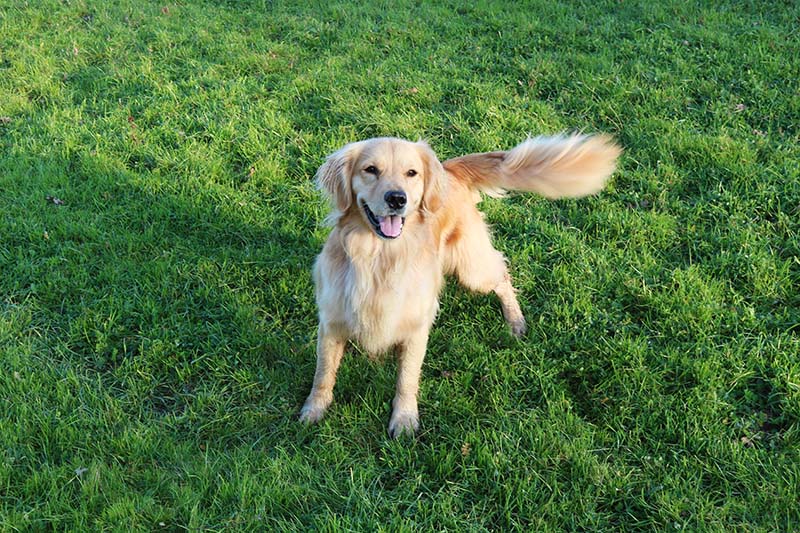
How Many Sporting Dogs Are Out There?
The AKC recognizes 33 breeds as sporting dogs. Here are a few of the most famous ones:
- Labrador Retriever
- Golden Retriever
- Curly-Coated Retriever
- Vizsla/Wirehaired Vizsla
- German Shorthaired Pointer
- German Wirehaired Pointer
- Cocker Spaniel (American)
- Irish Setter
Are Cocker Spaniels Good First-Time Dogs?
Sporting dogs are widely recognized as amazing companions. Thanks to their trainable, sociable, and energetic nature, they are outstanding family dogs. For that same reason, sporting dogs are often used as service and sniffing K9s. But does that mean you should pick a Cocker Spaniel as your first dog? The answer might be yes!
Cockers are affectionate, friendly, and quick to adapt to new circumstances and environments. They love to play games like fetch (to retrieve a ball or toy) and are always happy to join their human parents in a walk, run, or hike. In this way, you can keep your pet’s body in shape. Cockers don’t need that much exercise; 60–90 minutes should be enough. This breed is quick to learn new tricks, but they also have a sensitive heart. So, don’t be too harsh with them; instead, be patient and reward your furry bud with treats!
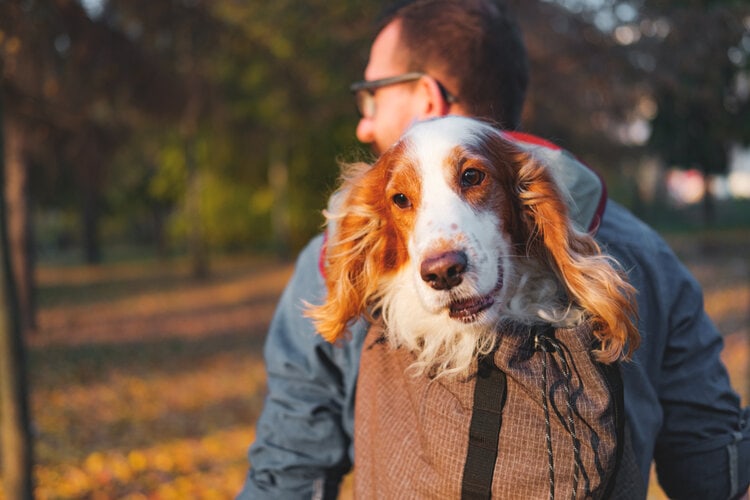
Keeping a Cocker Spaniel Safe: A Quick Guide
Cocker Spaniels are strong, healthy dogs. Thanks to their upbringing, these canines can live for up to 14 years and stay active for a long time. But just like any other breed, they are prone to various diseases. This includes both the American and English Cocker Spaniels. Here are the most common health conditions:
- Ear infections. Cockers often suffer from otitis, an inflammation caused by various bacteria/yeast. These dogs love to swim and that’s great. Unfortunately, it also means that moisture gets trapped in the ears, which often results in an infection. Regular cleaning is the best remedy here.
- Skin infections. Their long coats look amazing but they also require frequent grooming. If you leave the fur untreated for a week or so, that might lead to pyoderma. This infection is caused by bacteria that grow in moisture. Thankfully, it can be avoided by sticking to a regular brushing routine (two to three times a week).
- Eye diseases. Cataracts, glaucoma, and progressive retinal atrophy (PRA) are common in Cocker Spaniels. Cataracts often develop in the first 2–3 months of a pup’s life. Sadly, there are no working treatments for PRA. It doesn’t hurt the dog, though, and most Cockers can live fulfilling lives even with bad eyesight.
- Hip dysplasia. If your dog is limping, slow walking, and refusing to go for a walk/run, these are all common side effects of dislocated hips. Cocker Spaniels are not as susceptible to dysplasia as some larger dogs, but they can suffer from it. Talk to a vet to develop the right diet and therapy.
- Luxating patella. Dislocated kneecaps can make a canine citizen’s life even more uncomfortable and painful than dysplasia. Level 3–4 patella is treated with therapy and a veterinarian-approved set of exercises. While the dog might not get cured fully, it’s still possible to manage this condition.
Since Cockers need a bit more exercise and like to stay busy, their daily calorie intake should be higher compared to the average pup. But, instead of giving them extra carbs or fats, add extra protein into the mix.
We suggest talking to a vet to come up with the right diet for your dog based on their activity level and nutritional needs.
If you need to speak with a vet but can't get to one, head over to PangoVet. It's our online service where you can talk to a vet online and get the personalized advice you need for your pet — all at an affordable price!

Summary
Historically, Cocker Spaniels have always been exceptional hunters, helping us track and capture game since the medieval era. These days, Cockers are often seen as pets/companion dogs rather than hunters. However, that doesn’t mean they’ve lost their touch. Categorized by the AKC as sporting dogs, not workers, Cocker Spaniels are compactly built and gentle yet strong and skilled.
So, if you’re looking for a smart, obedient sporting dog with an instinct for hunting and a willingness to follow your command, this breed will be the right choice. Just make sure to keep them safe with regular veterinary checks, maintenance, and physical/mental stimulation. Treat your dog right, and you’ll get yourself a trustworthy, capable hunting partner!
Related Reads:
Featured Image Credit: otsphoto, Shutterstock
